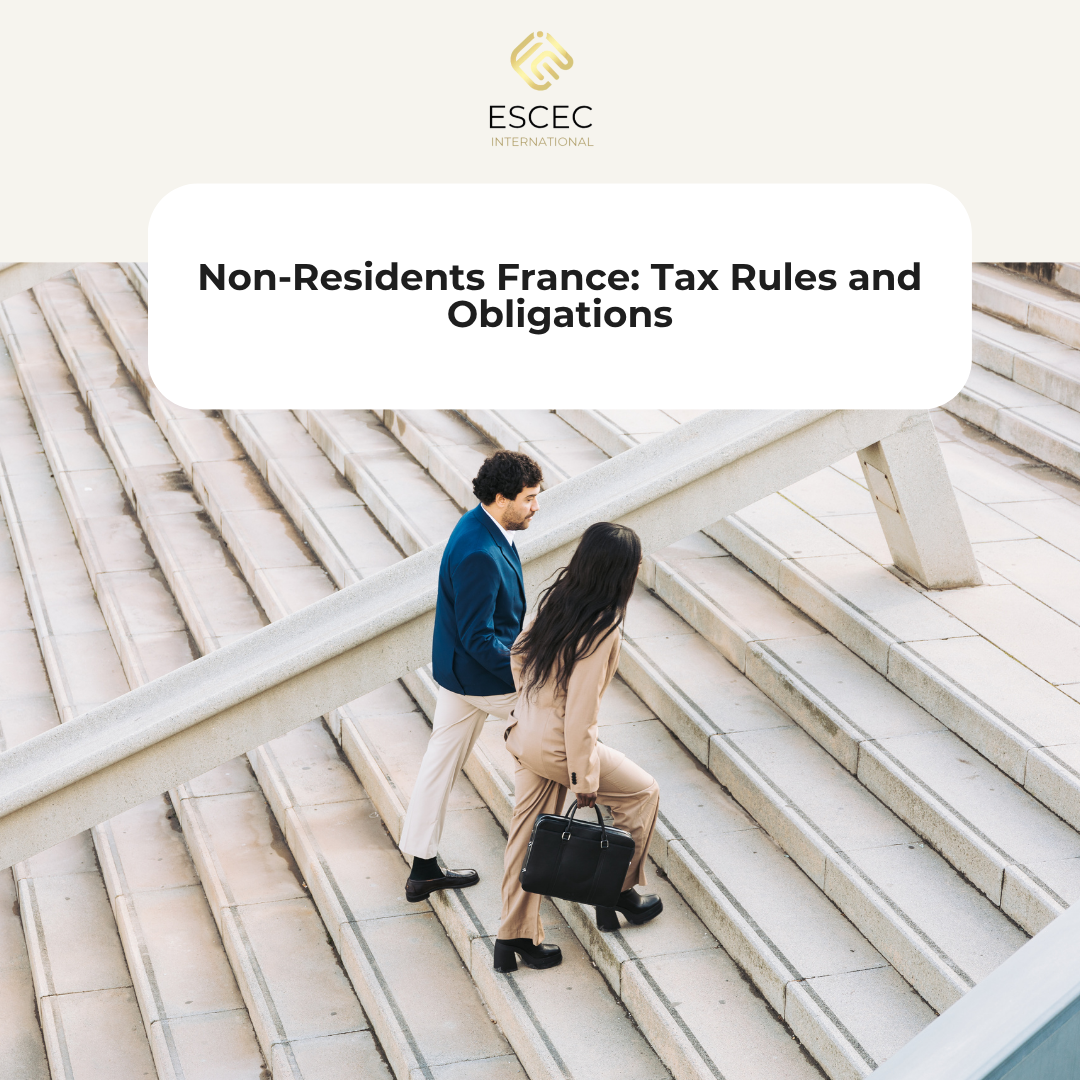Non-Residents France: Tax Rules and Obligations
Important: If you live outside France, always consult the tax authorities in your country of residence to confirm any filing or payment obligations, even if you pay taxes in France. For official information, see Service Public.
In some cases, depending on the applicable tax treaty (available at impots.gouv.fr), income or interest may need to be reported both in France and in your country of residence.
For more details on French tax and property changes, visit our internal guide: ESCEC International – Tax & Property 2026 Changes.
Non-Resident for Tax Purposes
Tax residency is determined individually for each household member. If you are married or in a civil partnership, one spouse may be treated as a French tax resident while the other is considered a non-resident.
If you continue earning income from French sources after leaving France, you must determine whether your tax residency remains in France.
Determining Your Tax Residency in France
International Tax Treaties Take Priority
International tax treaties generally override national law when determining tax residency. These treaties set specific criteria, which can differ depending on the agreement. Consult the treaty applicable to your situation for accurate guidance.
If no treaty exists between the countries involved, national legislation applies.
Under French Law
In the absence of an overriding treaty, you are considered a French tax resident if you meet one or more of the following:
-
Your household (spouse, civil partner, and/or children) remains in France, even if you live temporarily abroad or spend most of the year in another country for work. If you have no household, your main residence defines your tax domicile.
-
You carry out a professional activity in France, whether as an employee or otherwise, unless this activity is secondary.
-
Your economic interests are located in France. This includes the location of main investments, place of business, professional activity, or the source of most of your income.
For additional details, see the Bulletin Officiel des Impôts (BOI-IR-CHAMP-10).
Applying national laws of multiple countries can result in being considered a tax resident in more than one country. In such cases, the applicable tax treaty determines a single tax residence.
Tax Obligations for Non-Residents France
If you are a non-resident for French tax purposes, your obligations are generally limited to income sourced in France, taxable under relevant tax treaties.
Income from French sources, as defined in Article 164 B of the French General Tax Code, includes:
-
Property income
-
Dividends
-
Salaried or non-salaried professional income in France
-
Capital gains
-
Pensions when the payer is located in France
For guidance on reporting, 36 country-specific factsheets detail French-source income that non-residents must declare.
Special case: Employees of the central government, local authorities, or public hospitals should consult the dedicated guidance on Service Public.
Couples with Mixed Residency Status: dinr france
Each household member’s tax residency is assessed individually.
One Spouse Abroad, One in France: dinr france
If one spouse lives abroad while the other resides in France, the couple has mixed residency status. The French-resident spouse may still be considered a tax resident, resulting in different tax obligations.
Both spouses are French tax residents:
-
All income, including foreign-earned income, is taxable in France.
-
A joint income tax return must be filed with the tax office responsible for the household.
One spouse is a French resident, the other a non-resident under a tax treaty, joint property regime:
-
Declare all income of the French-resident spouse and any children or dependents residing in France.
-
Include the French-source income of the non-resident spouse if the treaty grants France the right to tax it.
Note: Foreign-source income of the non-resident spouse is excluded from the tax base and the effective tax rate. Non-resident household members are included for income-splitting purposes.
One Resident, One Non-Resident, Separation-of-Property Regime: Dinr france
-
Each spouse files an income tax return: resident with the local tax office of main residence; non-resident with the Individual Tax Department for Non-Residents.
-
Two tax notices are issued, taxing each according to residency status.
Year of Departure from France:
-
The spouse or civil partner who becomes non-resident files a return with the tax office of their former main residence.
-
They must declare any ongoing income from French sources taxable under an international treaty.
-
The file is then transferred to the Individual Tax Department for Non-Residents, with the taxpayer only needing to indicate departure from France and ongoing French-source income.

